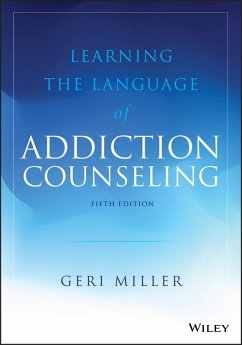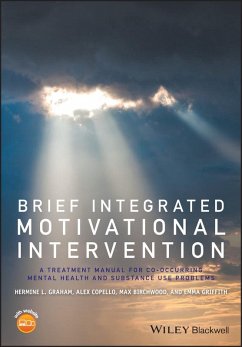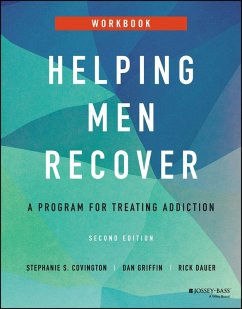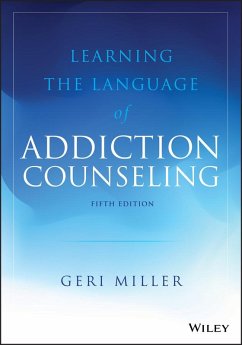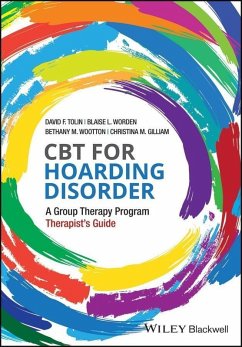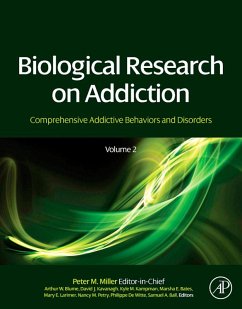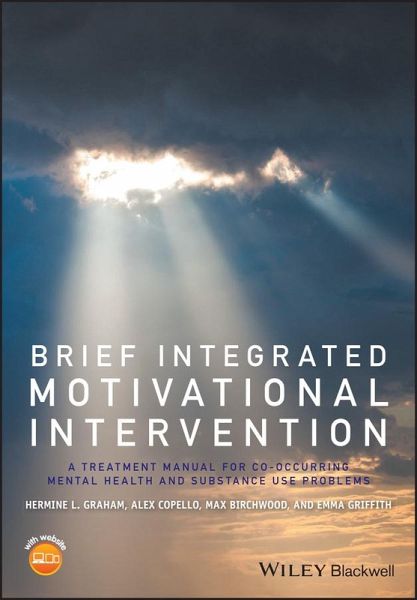
Brief Integrated Motivational Intervention (eBook, ePUB)
A Treatment Manual for Co-occuring Mental Health and Substance Use Problems
Versandkostenfrei!
Sofort per Download lieferbar
43,99 €
inkl. MwSt.
Weitere Ausgaben:

PAYBACK Punkte
0 °P sammeln!
BRIEF INTEGRATED MOTIVATIONAL INTERVENTION BRIEF INTEGRATED MOTIVATIONAL INTERVENTIONA TREATMENT MANUAL FOR CO-OCCURRING MENTAL HEALTH AND SUBSTANCE USE PROBLEMSBrief Integrated Motivational Intervention provides clinicians and specialist practitioners with a brief, evidence-based treatment approach for motivating clients who have comorbid mental health and alcohol and drug misuse issues. Developed by an expert team with many years of research and practice experience in the fields of psychosis and addiction, this approach combines cognitive behavioural therapy (CBT), motivational interviewing,...
BRIEF INTEGRATED MOTIVATIONAL INTERVENTION BRIEF INTEGRATED MOTIVATIONAL INTERVENTION
A TREATMENT MANUAL FOR CO-OCCURRING MENTAL HEALTH AND SUBSTANCE USE PROBLEMS
Brief Integrated Motivational Intervention provides clinicians and specialist practitioners with a brief, evidence-based treatment approach for motivating clients who have comorbid mental health and alcohol and drug misuse issues. Developed by an expert team with many years of research and practice experience in the fields of psychosis and addiction, this approach combines cognitive behavioural therapy (CBT), motivational interviewing, and the authors' own cognitive-behavioural integrated treatment (C-BIT). It allows practitioners to engage clients in meaningful dialogue for change during short windows of opportunity following relapses or admittance to psychiatric hospital, and helps clients consider the impact of substance misuse on their mental health. Easy to understand and implement, this guide also includes helpful tools for practitioners, such as session-specific content, illustrative case material, easy-to-use worksheets, and additional information for family members and friends.
A TREATMENT MANUAL FOR CO-OCCURRING MENTAL HEALTH AND SUBSTANCE USE PROBLEMS
Brief Integrated Motivational Intervention provides clinicians and specialist practitioners with a brief, evidence-based treatment approach for motivating clients who have comorbid mental health and alcohol and drug misuse issues. Developed by an expert team with many years of research and practice experience in the fields of psychosis and addiction, this approach combines cognitive behavioural therapy (CBT), motivational interviewing, and the authors' own cognitive-behavioural integrated treatment (C-BIT). It allows practitioners to engage clients in meaningful dialogue for change during short windows of opportunity following relapses or admittance to psychiatric hospital, and helps clients consider the impact of substance misuse on their mental health. Easy to understand and implement, this guide also includes helpful tools for practitioners, such as session-specific content, illustrative case material, easy-to-use worksheets, and additional information for family members and friends.
Dieser Download kann aus rechtlichen Gründen nur mit Rechnungsadresse in D ausgeliefert werden.




